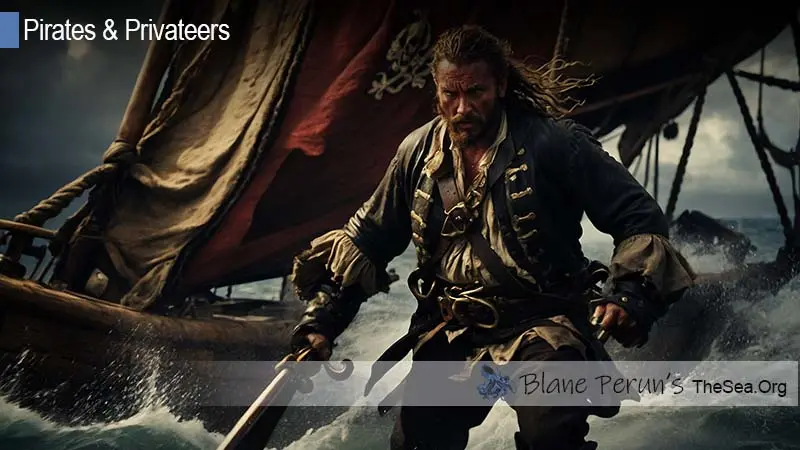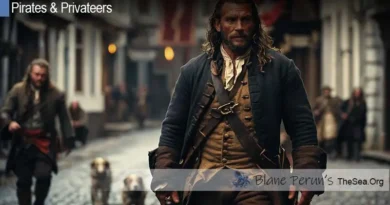What made Charles Vane different from other pirates of his time
Unveiling the Singular Legacy of Charles Vane: A Unique Force in the Golden Age of Piracy
Charles Vane, a name that resonates with an eerie echo through the annals of piracy history. Unlike his contemporaries, Vane’s legacy is marked not just by his notorious acts but by a distinct set of traits and decisions that set him apart during the Golden Age of Piracy. This article delves into the specifics of what made Charles Vane different from other pirates of his era, exploring his unique approach to piracy, leadership style, and the strategies that defined his infamy.
Charles Vane’s Ruthless Leadership Style
Embracing Brutality as a Tool of Command
Charles Vane was known for his ruthless leadership style, a trait that distinguished him from many of his contemporaries. Unlike other pirate captains who often sought the favor or loyalty of their crew, Vane utilized sheer brutality and fear as his primary tools of command. This approach made him an exceptionally feared leader. His reputation for cruelty was not just a means to control his crew but also a tactic to intimidate his targets. This terror-infused leadership was both his strength and eventually, his downfall, as it led to dissent among his crew and his eventual capture.
Vane’s Strategic Defiance Against Pardon
The Decision to Reject Royal Pardon
In an era where many pirates accepted royal pardons in exchange for ceasing their piratical activities, Charles Vane stood out by his outright rejection of these offers. His decision to defy the Crown and continue his piratical pursuits even after the proclamation of King George I’s pardon highlights his relentless commitment to piracy. This defiance was not just an act of rebellion but a strategic move that maintained his fearsome reputation and upheld his status among pirate communities. This decision, while bold, contributed to his notoriety and ultimately led to increased efforts by the authorities to capture him.
Innovative Naval Tactics and Maneuvers
Mastering the Art of Agile Piracy
What set Charles Vane apart in the realm of piracy was not just his leadership or defiance but also his mastery of naval tactics. Vane’s approach to piracy was marked by innovative maneuvers and agile tactics, making him a formidable opponent on the high seas. His ability to outmaneuver larger, more heavily armed vessels demonstrated a deep understanding of naval warfare and ship handling. Vane’s tactical prowess allowed him to successfully raid and escape, making him one of the most elusive pirates of his time.
Psychological Warfare and Reputation
Cultivating Fear and Infamy
Charles Vane was a master of psychological warfare, using his fearsome reputation as a strategic tool. His acts of cruelty and defiance were not just for the sake of violence but were carefully crafted to cultivate an image of fear and infamy. This psychological aspect of his piracy made him an enigmatic figure, both feared and respected. Vane’s reputation preceded him, often causing targets to surrender without a fight, proving that in the world of piracy, reputation could be just as powerful as firepower.
Conclusion
Charles Vane’s approach to piracy was marked by a combination of ruthless leadership, strategic defiance, innovative naval tactics, and psychological warfare. His story is a testament to the complexity and diversity of pirate life during the Golden Age of Piracy. Vane was not just another pirate; he was a figure who defied the norms and created a legacy that continues to intrigue and inspire.
Frequently Asked Questions
- How did Charles Vane’s leadership style differ from other pirates? Charles Vane’s leadership style was notably more brutal and fear-based compared to other pirates. He used terror as a primary tool to maintain command, unlike other pirate captains who relied on loyalty or charisma. This approach made him exceptionally feared both by his crew and his targets.
- Why did Charles Vane refuse the royal pardon, unlike other pirates? Charles Vane’s refusal of the royal pardon was a strategic decision to maintain his reputation and continue his piracy. He saw the pardon as a betrayal of his commitment to piracy and chose defiance to uphold his fearsome status among pirates and his targets.
- What naval tactics made Charles Vane stand out among his peers? Vane’s use of agile maneuvers and innovative tactics set him apart. He was adept at outmaneuvering larger ships and using the element of surprise, showcasing a profound understanding of naval strategy and ship handling.
- In what ways did Charles Vane use psychological warfare? Vane skillfully used his reputation to instill fear and respect. His acts of cruelty and defiance were not random but intended to build an image that would psychologically intimidate his enemies, often leading to their surrender without a fight.
- What is the lasting impact of Charles Vane’s legacy in pirate history? Charles Vane’s legacy lies in his unique approach to piracy, marked by brutality, defiance, tactical prowess, and psychological warfare. His story contributes to the diverse narrative of piracy during the Golden Age, highlighting the multifaceted nature of pirate life and leadership.




